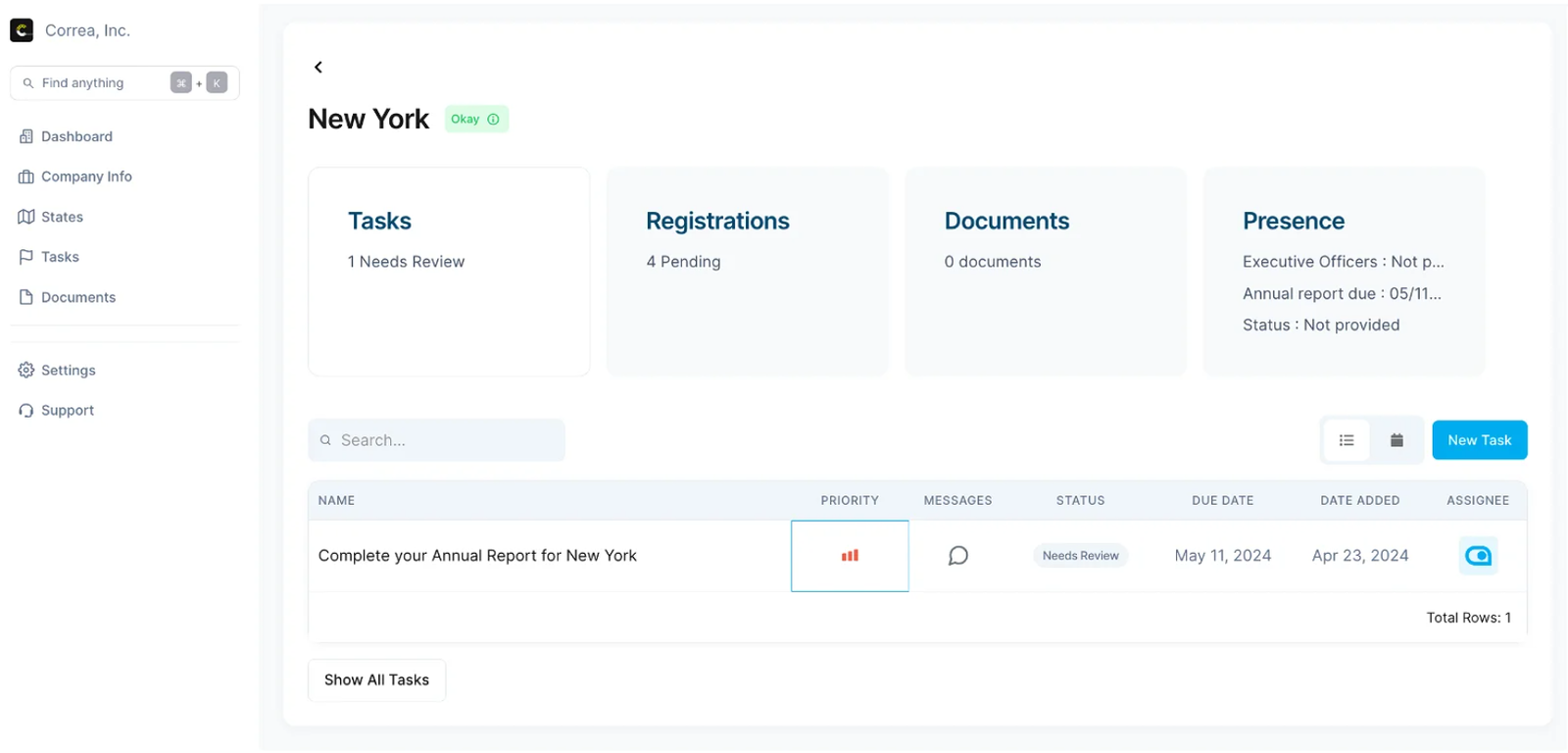Summary
The fact that you may need to register with state agencies like California Secretary of State is a sneaky misconception that many folks miss.
However, with the rise of remote work, states have begun cracking down and levying penalties for those who (unknowingly) fail to register.
If you're considering operating in California, use this guide to:
- Explore the that triggers the need to register with the California Secretary of State, including criteria such as physical presence, economic activity, and advertising efforts.
- Determine where and how to register with the California Secretary of State.
- Understand additional requirements such as Registered Agents, registration with other state departments, and ongoing annual reports.
What criteria would trigger the requirement to register with the California Secretary of State?
What is considered "doing business" in California?
- Physical Presence: Owning or leasing property (offices, stores, warehouses, etc.) in California, or having executives or founders based in the state.
- Significant Sales: Making regular sales to California customers, whether in-person or through online platforms.
- Providing Services: Performing services or installations within the state.
- Economic Thresholds: Exceeding specific sales, property, or payroll thresholds outlined by the California Franchise Tax Board.
- Recurring Business Activities: Engaging in any consistent pattern of business activities in California.
Activities NOT Usually Considered "Doing Business" Certain actions don't necessarily require foreign entity registration:
- Defending or settling lawsuits.
- Holding board meetings or shareholder gatherings.
- Maintaining bank accounts.
- Securing or collecting debts.
- Isolated transactions completed within a short period and not part of a recurring business pattern.
Where do I register, and what else is required?
- A Certificate of Good Standing is required
In addition:
A Registered Agent is required to serve as the company's physical in-state presence to receive important legal documents. Do not fall victim to the common misconception that you can leverage an in-state employee as your Registered Agent. It's far too risky.
You'll want to review the other registrations required in California. Here's a California specific guide we put together.
What is the registration fee?
The fee charged by California is $100 (if registration is needed).
How long does California usually take to process?
California usually takes approximately 2 - 3 weeks to process registrations.
What is required ongoing?
Each state has a complex schedule of required annual reports, which can vary by entity type. Let's take a look at California's:
C-Corporation
- Filing Date: By the last day of the anniversary month
- Filing Frequency: Annual
LLC
- Filing Date: By the last day of the anniversary month
- Filing Frequency: Biennial
Non-Profit
- Filing Date: By the last day of the anniversary month
- Filing Frequency: Biennial
There is an Easier Way
 Automate registration and annual report tracking in AbstractOps.
Automate registration and annual report tracking in AbstractOps.This guide should definitely help reduce some of the confusion for California. However, if you have multiple states to worry about, you may look to:
Automate state registrations and annual reports
Centralize email, snail mail, state ID’s, and registered agents, and
Take control of action items, eliminating risks before they become penalties.
Start the AbstractOps product demo to see how easy this can be.
Note: For the avoidance of doubt, nothing provided here shall contemplate, constitute or include tax or legal advice. Always double check with state agency websites for the most up-to-date requirements.



